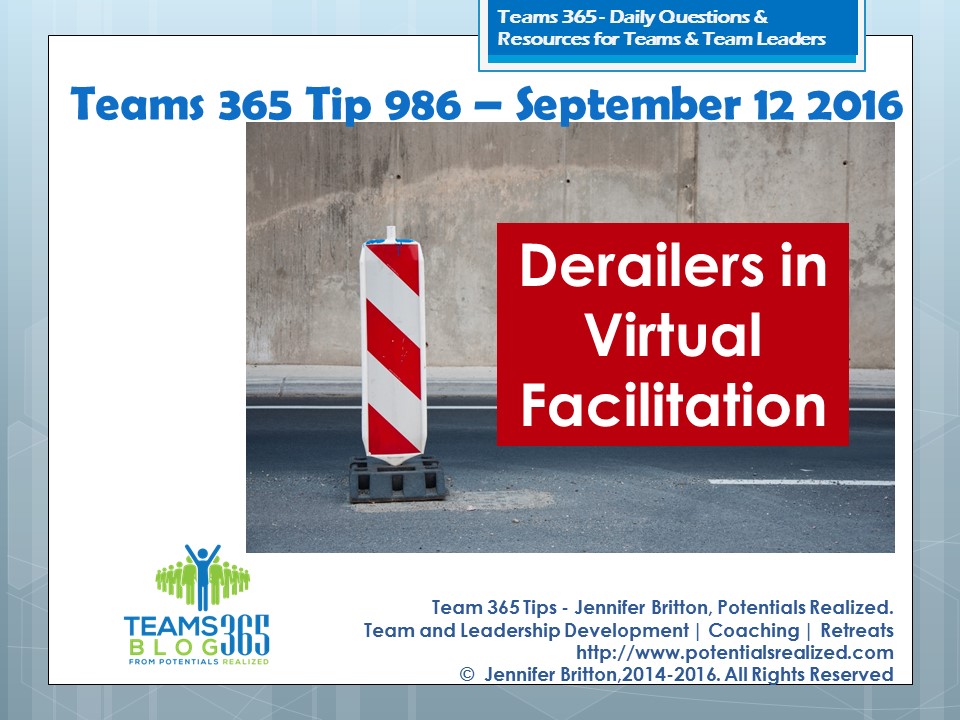A lack of focus - A strong hand on process plays a key role in great facilitation work, especially true in the realm of virtual facilitation.
Different people on different platforms - today's meeting realities has blended platforms as a reality for many virtual events. Perhaps there are six people calling in from a conference room in downtown Toronto, some in Montreal and the virtual callers from other locations (even down the block!). When facilitating be aware of what can and cannot be seen by each party. If you are facilitating from a live environment be sure that you don't only pay attention to those in the room with you.
people feeling disconnected - in instances where you have one or more people calling in from their own location, notice how connected they feel to the larger group. Engage them regularly verbally, and invite comments through chat, annotation and other virtual features. Proviiding regular opportunities for smaller group work helps to boost intereactivity.
Not having the right format for the right type of purpose. A lot of professionals think that webinars are the only format for virtual meetings today. Webinars, especially engaging ones, can be great for a training experience, but it may lack the interactivity needed in learning complex skills, building teams or running a focus group. Leveraging platforms such as zoom can allow for all participants to see each other and interact. Breakouts also can mimic the traditional small group dialogue which is so important for the learning and exploration of complex topics. Just because you had a bad experience once with breakouts, don't assume that will always occur.
Another derailer is when it becomes all about the facilitator. Connecting people early on with their WIIFM - What's in it for me (i.e. What's important about me learning? What do I want to get out of the call etc), - is critical. There is need to give up control along the way to open up the realm of engagement. That can mean giving group members the ability to, and encouragement, to use markers, chat, questions and answers etc.
Finally , the facilitator's "PRESENCE" also has a significant impact on the tone an energy of the room. Consider the tone you want to create, the pace and pitch you want to set the meeting at. Your voice tone is critical. Notice the energy that exists around the "virtual room". These skills of presence, and listening, become paramount in exceptional virtual facilitation.
What derailers do you encounter in your virtual meetings? What's going to elp mitigate against these or avoid them altogether?
Best wishes,
Jennifer
Jennifer
Jennifer Britton
Potentials Realized | Coaching Team Leaders
Check out our newest on-demand course: Teams365 Teamwork Foundations
Follow us on Twitter @Teams365
Join us this fall for a 15 hour Virtual Train-the-trainer in the Virtual Facilitation Skills Intensive program. We'll be covering the best practices of designing and leading virtual calls. The program will be held on Fridays from 3 - 4:30 pm ET starting September 23. Click here to learn more and reserve your spot.

 RSS Feed
RSS Feed





